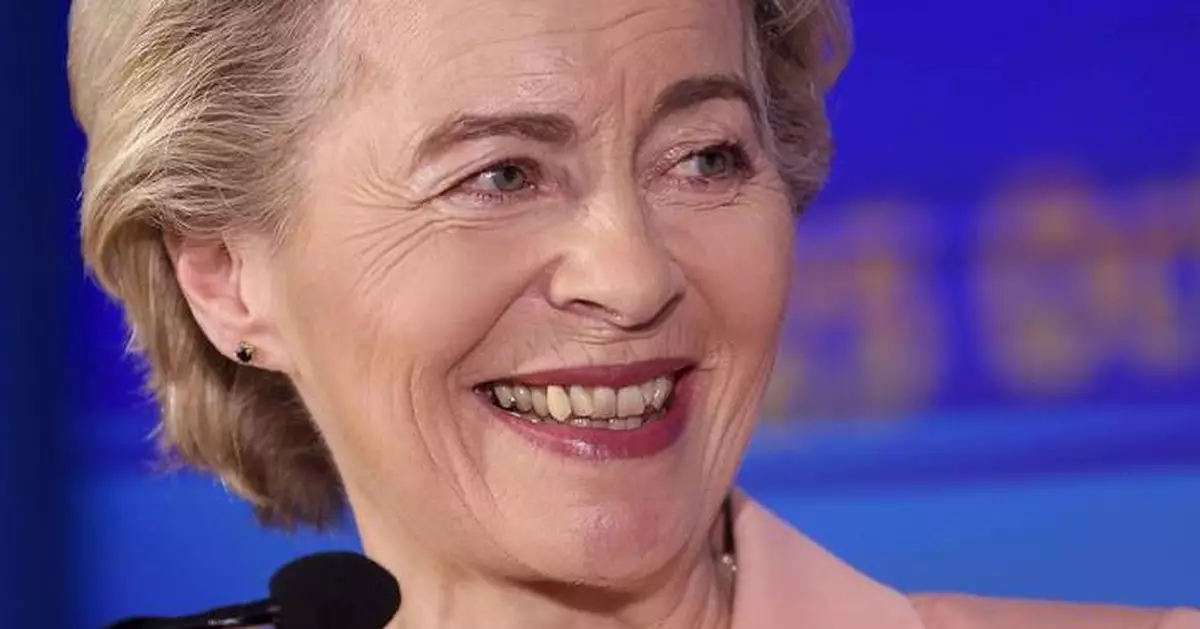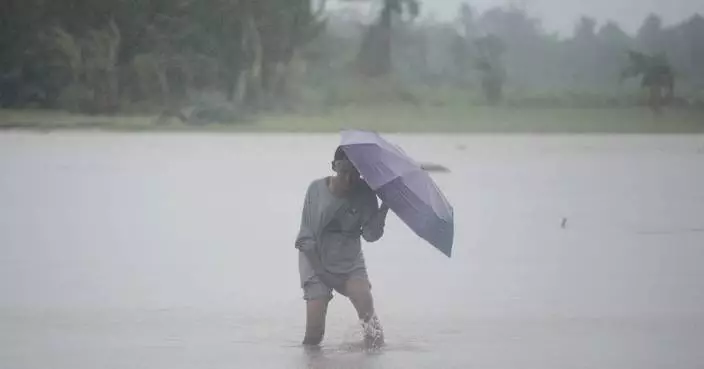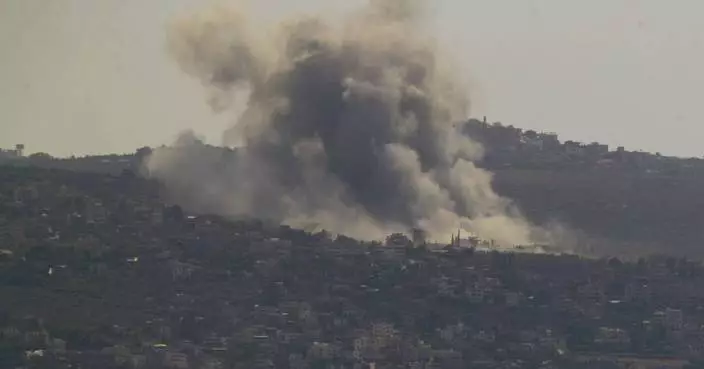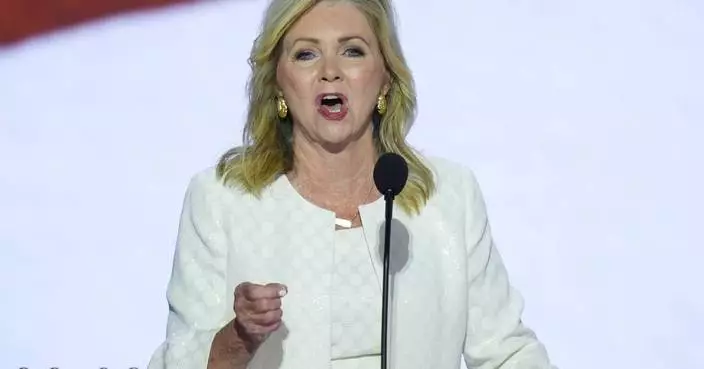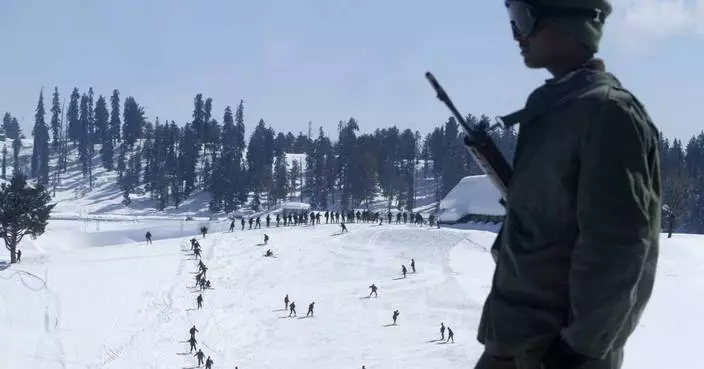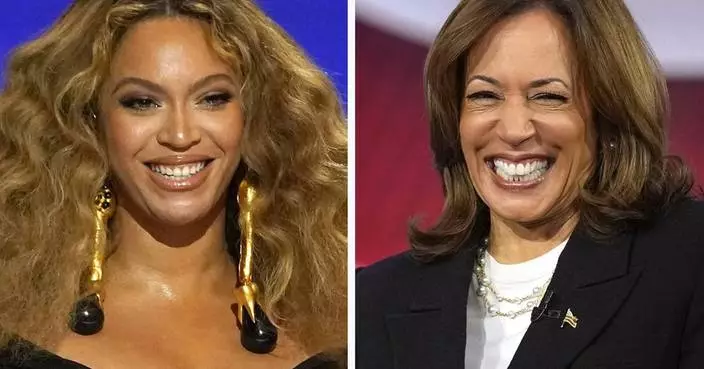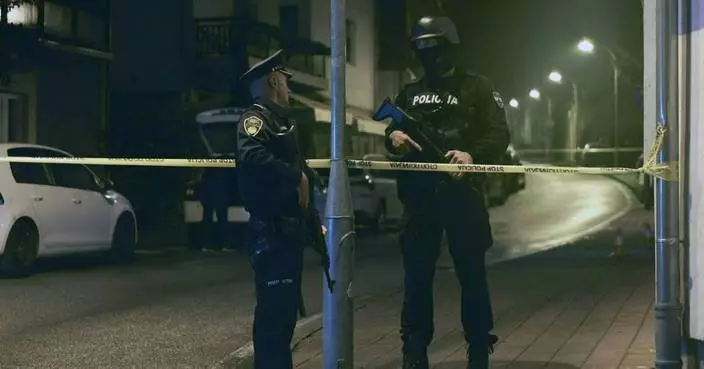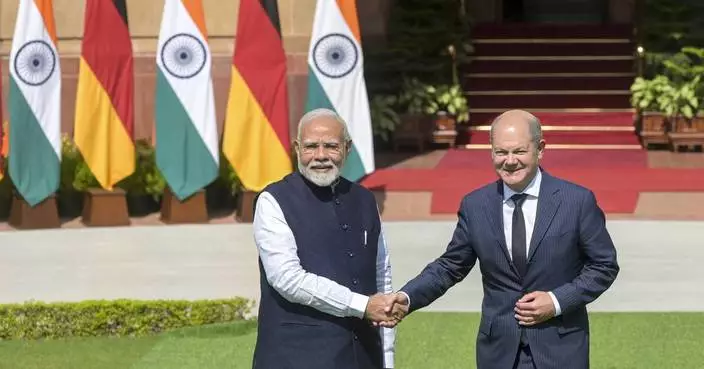SARAJEVO, Bosnia-Herzegovina (AP) — European Commission President Ursula von der Leyen on Friday promised support for Bosnia as the troubled Balkan country struggles with reform needed to advance toward membership in the European Union.
Von der Leyen was in Bosnia as part of a trip this week to aspiring EU member states in the Western Balkans to assure them that EU enlargement remains a priority for the 27-nation bloc. From Bosnia, von der Leyen went on to neighboring Serbia.
Click to Gallery
Members of the Bosnian Presidency Zeljka Cvijanovic, left, Denis Becirovic, center and Zeljko Komsic, right, pose for a photo with European Commission President Ursula von der Leyen, prior to the start of their meeting in Sarajevo, Bosnia, Friday, Oct. 25, 2024. (AP Photo/Armin Durgut)
Members of the Bosnian Presidency Zeljka Cvijanovic, left, Denis Becirovic, center and Zeljko Komsic, right, pose for a photo with European Commission President Ursula von der Leyen, prior to the start of their meeting in Sarajevo, Bosnia, Friday, Oct. 25, 2024. (AP Photo/Armin Durgut)
European Commission President Ursula von der Leyen, front left, walks with the member of the Bosnian Presidency Denis Becirovic, right foreground, prior to the start of their meeting in Sarajevo, Bosnia, Friday, Oct. 25, 2024. (AP Photo/Armin Durgut)
European Commission President Ursula von der Leyen looks on at the start of her meeting with the members of the Bosnian Presidency in Sarajevo, Bosnia, Friday, Oct. 25, 2024. (AP Photo/Armin Durgut)
European Commission President Ursula von der Leyen adjusts her headset during a joint news conference with the President of the Council of Ministers of Bosnia and Herzegovina Borjana Kristo in Sarajevo, Bosnia, Friday, Oct. 25, 2024. (AP Photo/Armin Durgut)
European Commission President Ursula von der Leyen speaks during a joint news conference with the President of the Council of Ministers of Bosnia and Herzegovina Borjana Kristo in Sarajevo, Bosnia, Friday, Oct. 25, 2024. (AP Photo/Armin Durgut)
European Commission President Ursula von der Leyen speaks during a joint news conference with the President of the Council of Ministers of Bosnia and Herzegovina Borjana Kristo in Sarajevo, Bosnia, Friday, Oct. 25, 2024. (AP Photo/Armin Durgut)
Russian President Vladimir Putin and Bosnian Serb political leader Milorad Dodik attend a meeting on the sidelines of the BRICS Summit in Kazan, Russia, Friday, Oct. 25, 2024. (Alexander Kazakov, Sputnik, Kremlin Pool Photo via AP)
European Commission President Ursula von der Leyen smiles during a joint news conference with the President of the Council of Ministers of Bosnia and Herzegovina Borjana Kristo in Sarajevo, Bosnia, Friday, Oct. 25, 2024. (AP Photo/Armin Durgut)
The Western Balkans countries — Albania, Bosnia, Kosovo, Montenegro, North Macedonia and Serbia — are at different stages in their applications for EU membership. The countries have been frustrated by the slow pace of the process, but Russia’s invasion of Ukraine in February 2022 has propelled European leaders to push the six to join the bloc.
Bosnia gained candidate status in 2022 while EU leaders in March agreed in principle to open membership negotiations, though Bosnia must still do a lot of work.
“We share the same vision for the future, a future where Bosnia-Herzegovina is a full-fledged member of the European Union,” said von der Leyen at a joint press conference with Bosnian Prime Minister Bojana Kristo. “So, I would say, let’s continue working on that. We’ve gone a long way already, we still have a way ahead of us but I am confident that you’ll make it.”
Last year EU officials offered a 6-billion-euro (about $6.5 billion) growth plan to the Western Balkan countries in an effort to double the region’s economy over the next decade and accelerate their efforts to join the bloc. That aid is contingent on reforms that would bring their economies in line with EU rules.
The Commission on Wednesday approved the reform agendas of Albania, Kosovo, Montenegro, North Macedonia and Serbia following a green light from EU member states. That was a key step to allow payments under the growth plan upon completion of agreed reform steps.
“The accession process is, as you know, merit-based … we do not look at a rigid data but we look at the merits, the progress that a country is making,” said von der Leyen. "The important thing is that we have an ambitious reform agenda, like the other five Western Balkan countries also have. We stand ready to help you to move forward.”
Long after a 1992-95 ethnic war that killed more than 100,000 people and left millions homeless, Bosnia remains ethnically divided and politically deadlocked. An ethnic Serb entity — one of Bosnia's two equal parts joined by a common government — has sought to gain as much independence as possible.
Upon arrival in Bosnia, von der Leyen on Thursday first went to Donja Jablanica, a village in central Bosnia that was devastated in recent floods and landslides. The disaster in early October claimed 27 lives and the small village was virtually buried in rocks from a quarry located on a hill above.
Von der Leyen said the EU is sending an immediate aid package of 20 million euros ($21 million) and will also provide support for reconstruction later on.
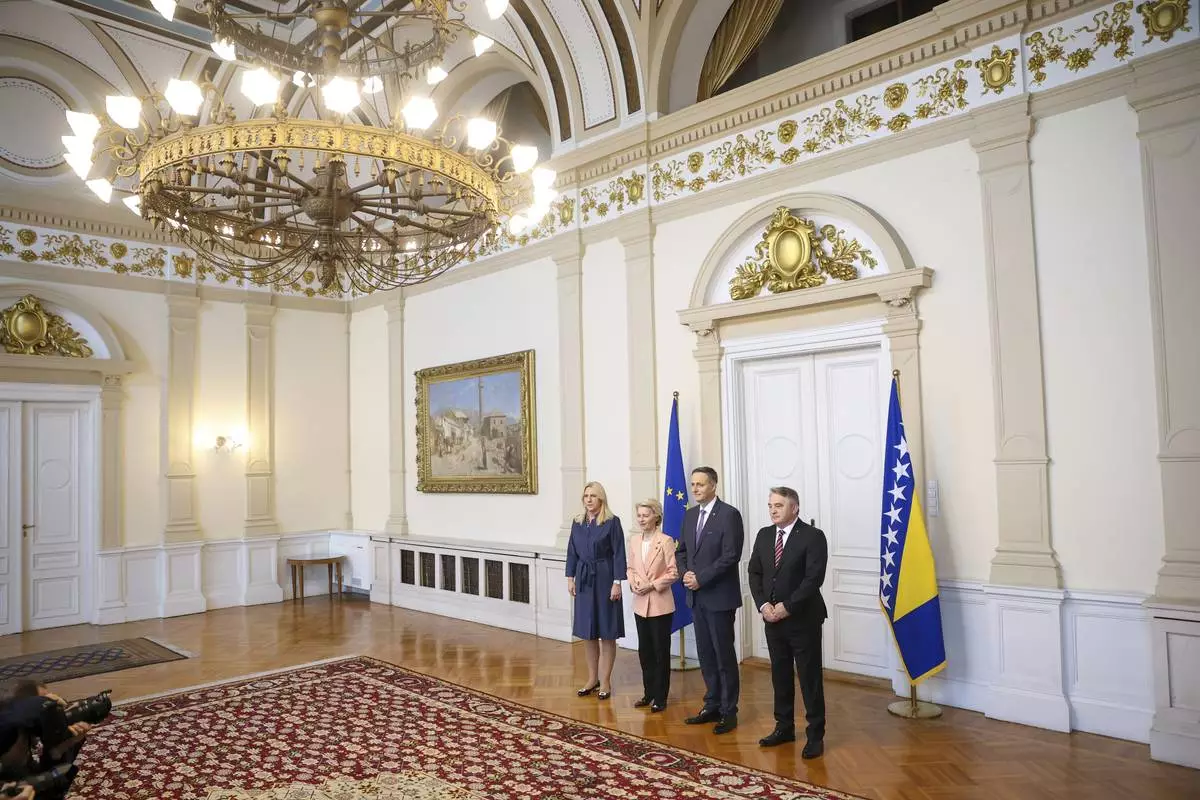
Members of the Bosnian Presidency Zeljka Cvijanovic, left, Denis Becirovic, center and Zeljko Komsic, right, pose for a photo with European Commission President Ursula von der Leyen, prior to the start of their meeting in Sarajevo, Bosnia, Friday, Oct. 25, 2024. (AP Photo/Armin Durgut)
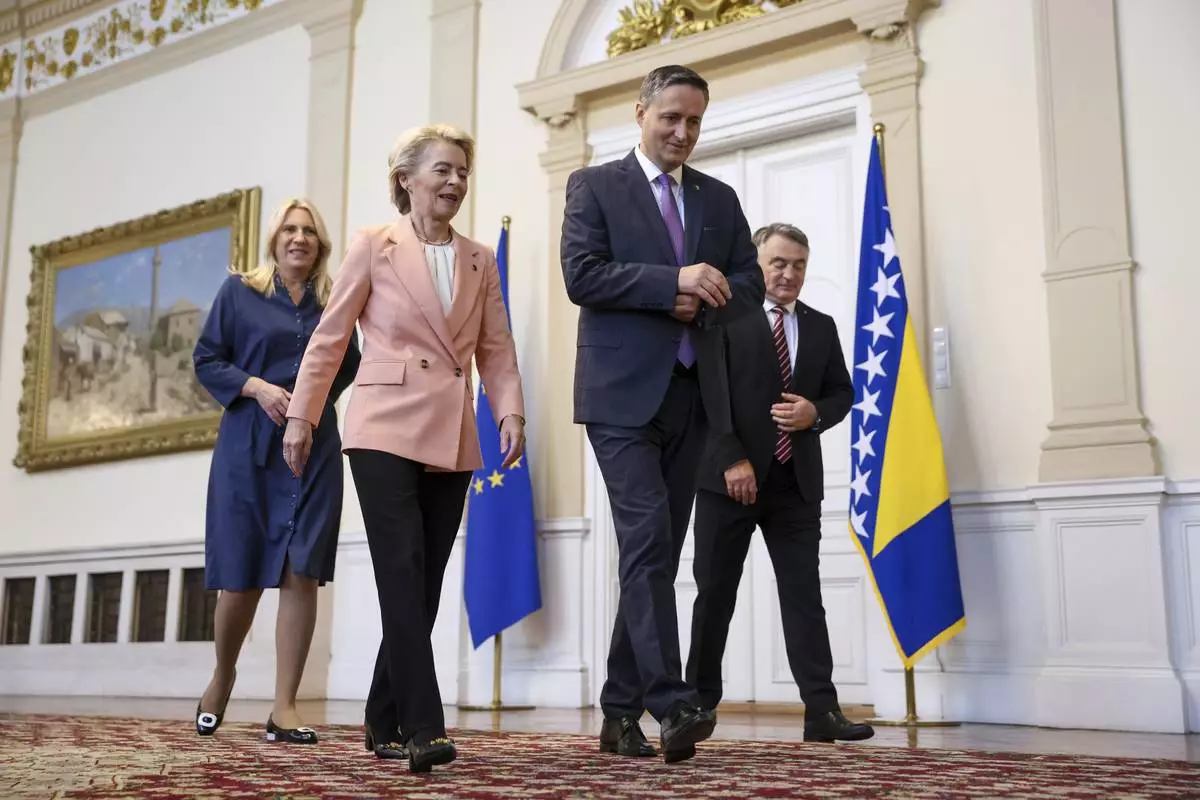
European Commission President Ursula von der Leyen, front left, walks with the member of the Bosnian Presidency Denis Becirovic, right foreground, prior to the start of their meeting in Sarajevo, Bosnia, Friday, Oct. 25, 2024. (AP Photo/Armin Durgut)
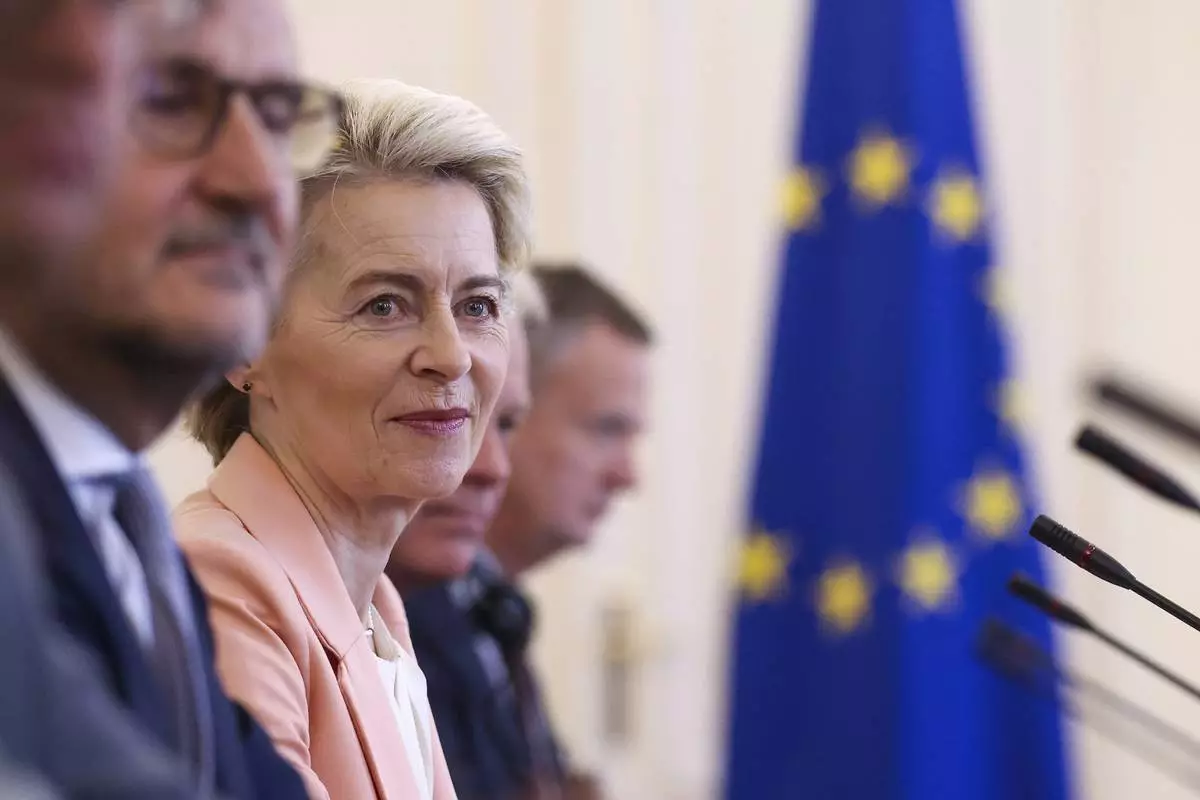
European Commission President Ursula von der Leyen looks on at the start of her meeting with the members of the Bosnian Presidency in Sarajevo, Bosnia, Friday, Oct. 25, 2024. (AP Photo/Armin Durgut)
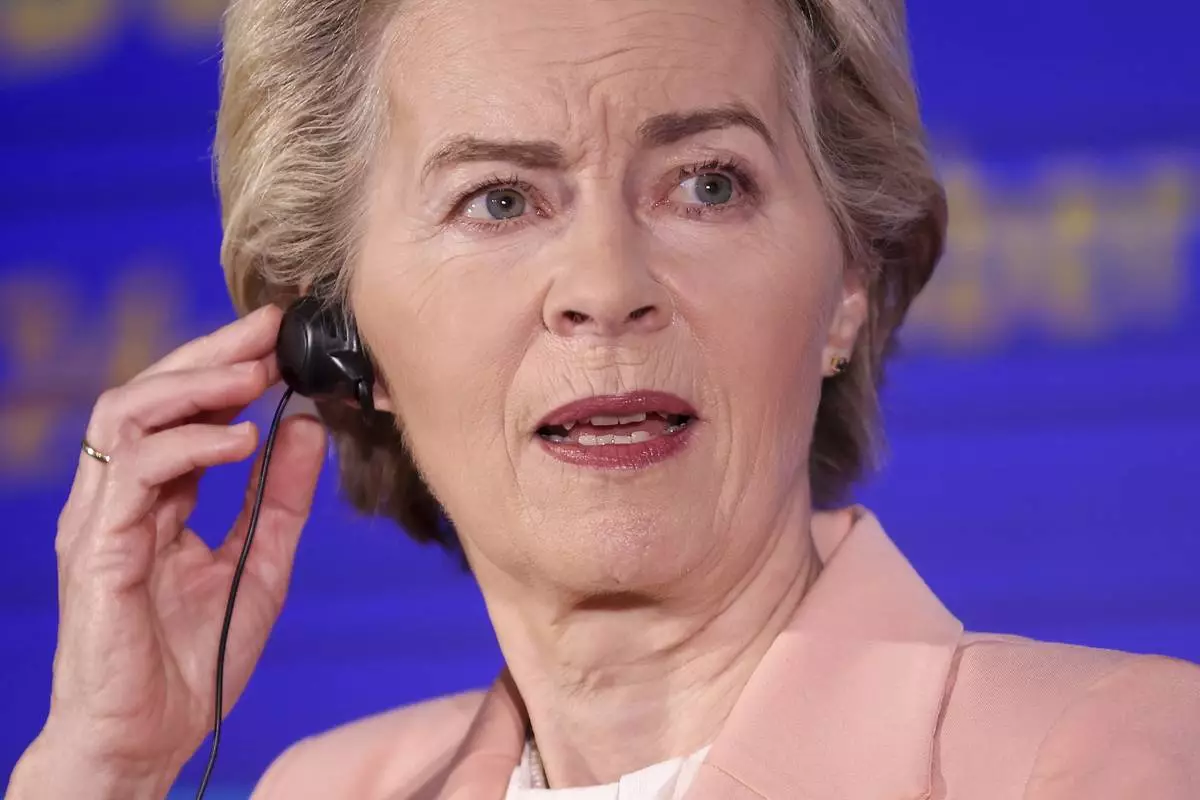
European Commission President Ursula von der Leyen adjusts her headset during a joint news conference with the President of the Council of Ministers of Bosnia and Herzegovina Borjana Kristo in Sarajevo, Bosnia, Friday, Oct. 25, 2024. (AP Photo/Armin Durgut)
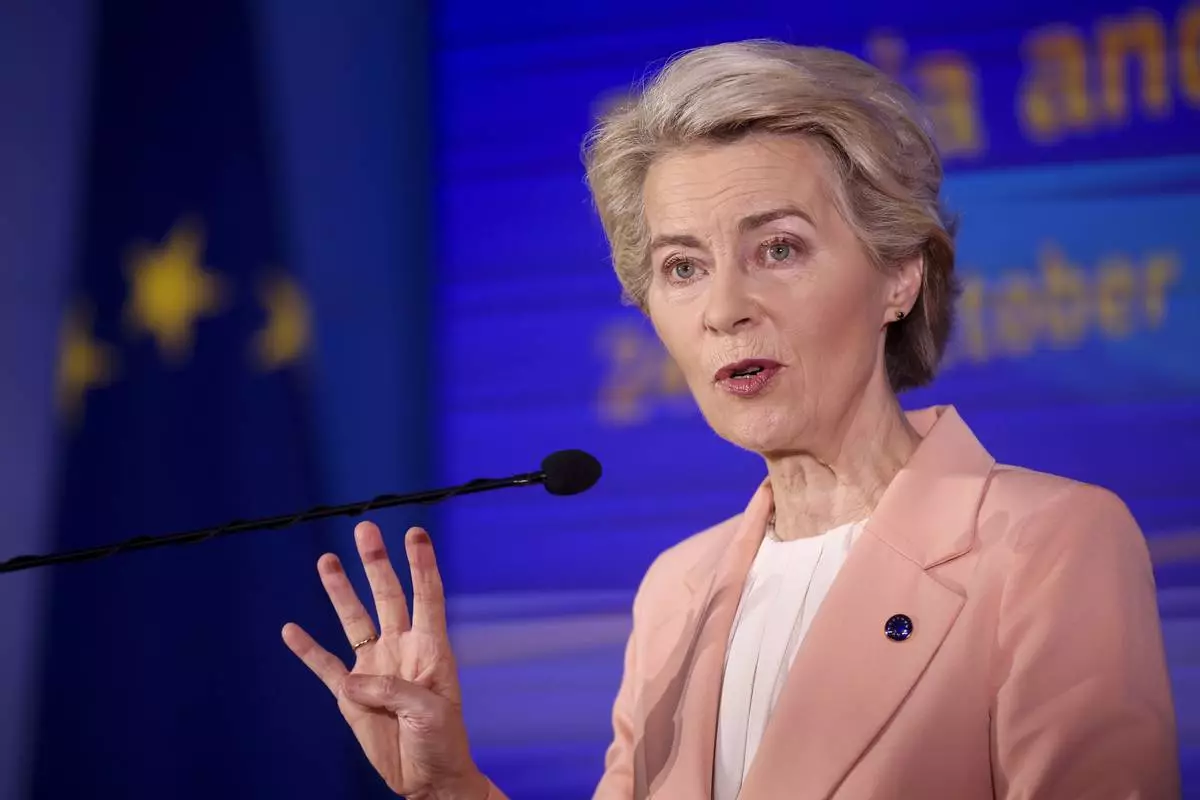
European Commission President Ursula von der Leyen speaks during a joint news conference with the President of the Council of Ministers of Bosnia and Herzegovina Borjana Kristo in Sarajevo, Bosnia, Friday, Oct. 25, 2024. (AP Photo/Armin Durgut)
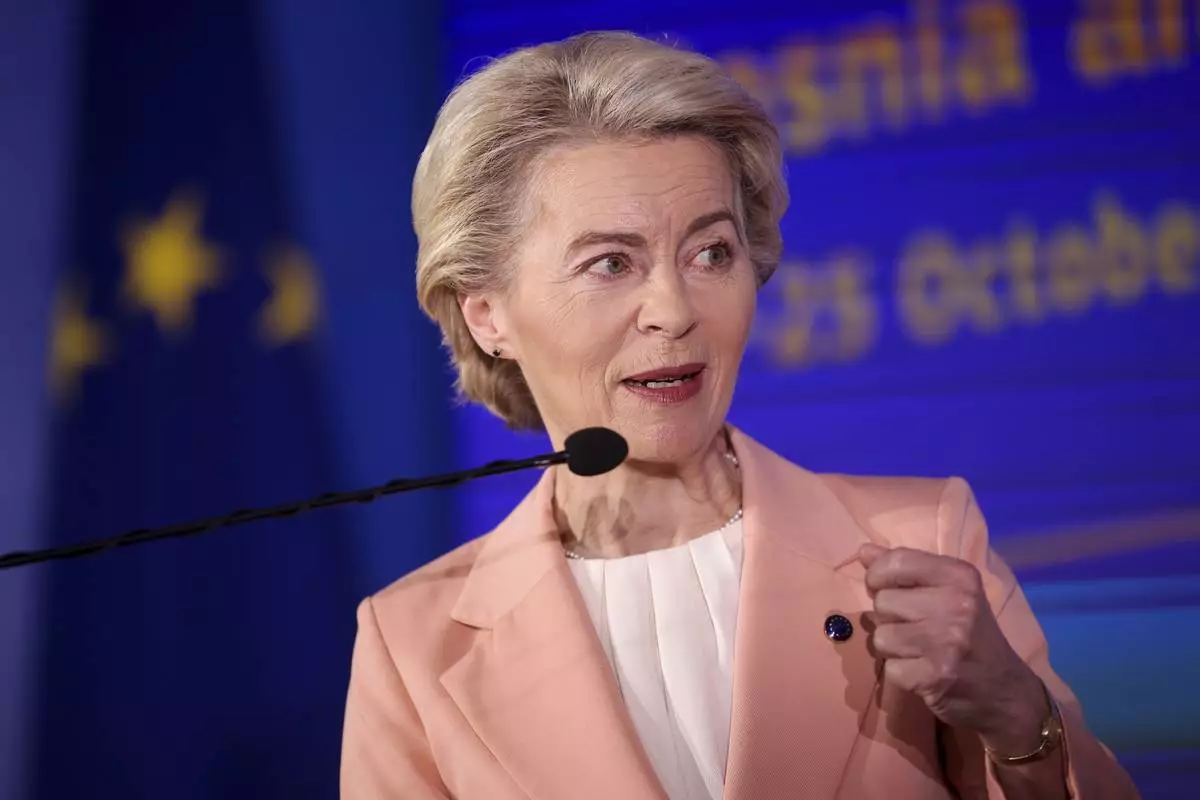
European Commission President Ursula von der Leyen speaks during a joint news conference with the President of the Council of Ministers of Bosnia and Herzegovina Borjana Kristo in Sarajevo, Bosnia, Friday, Oct. 25, 2024. (AP Photo/Armin Durgut)
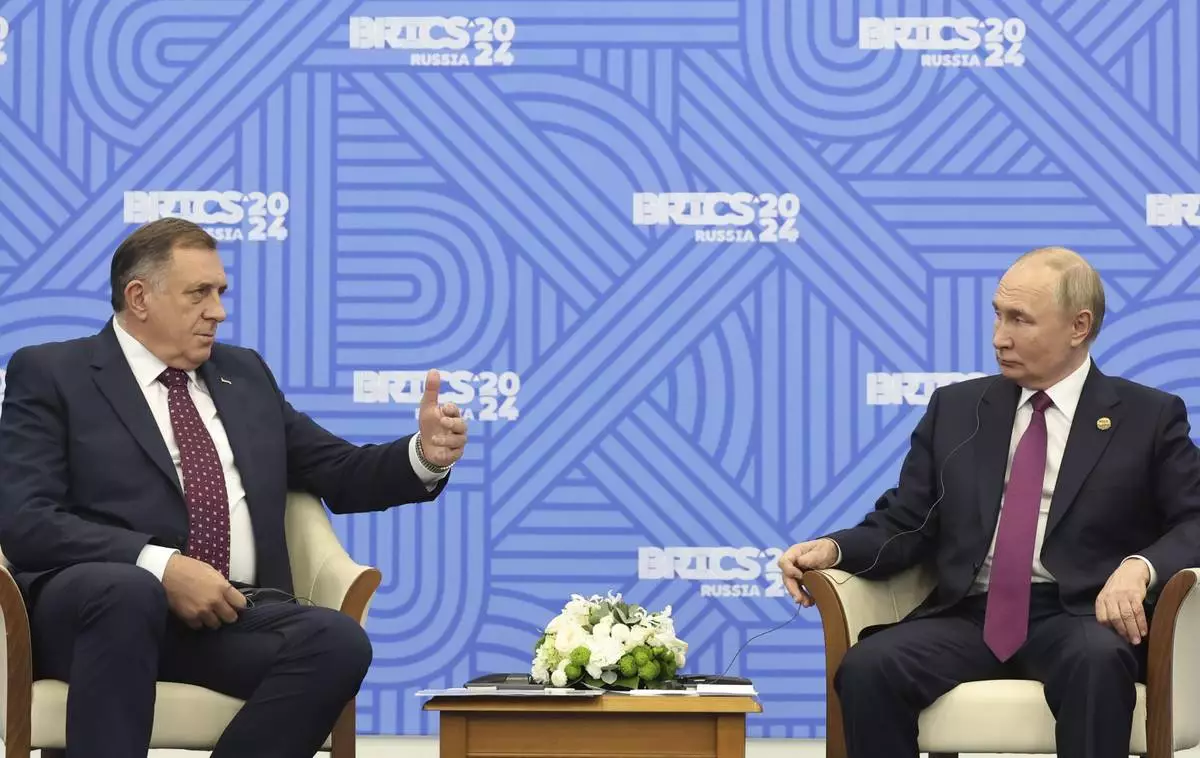
Russian President Vladimir Putin and Bosnian Serb political leader Milorad Dodik attend a meeting on the sidelines of the BRICS Summit in Kazan, Russia, Friday, Oct. 25, 2024. (Alexander Kazakov, Sputnik, Kremlin Pool Photo via AP)
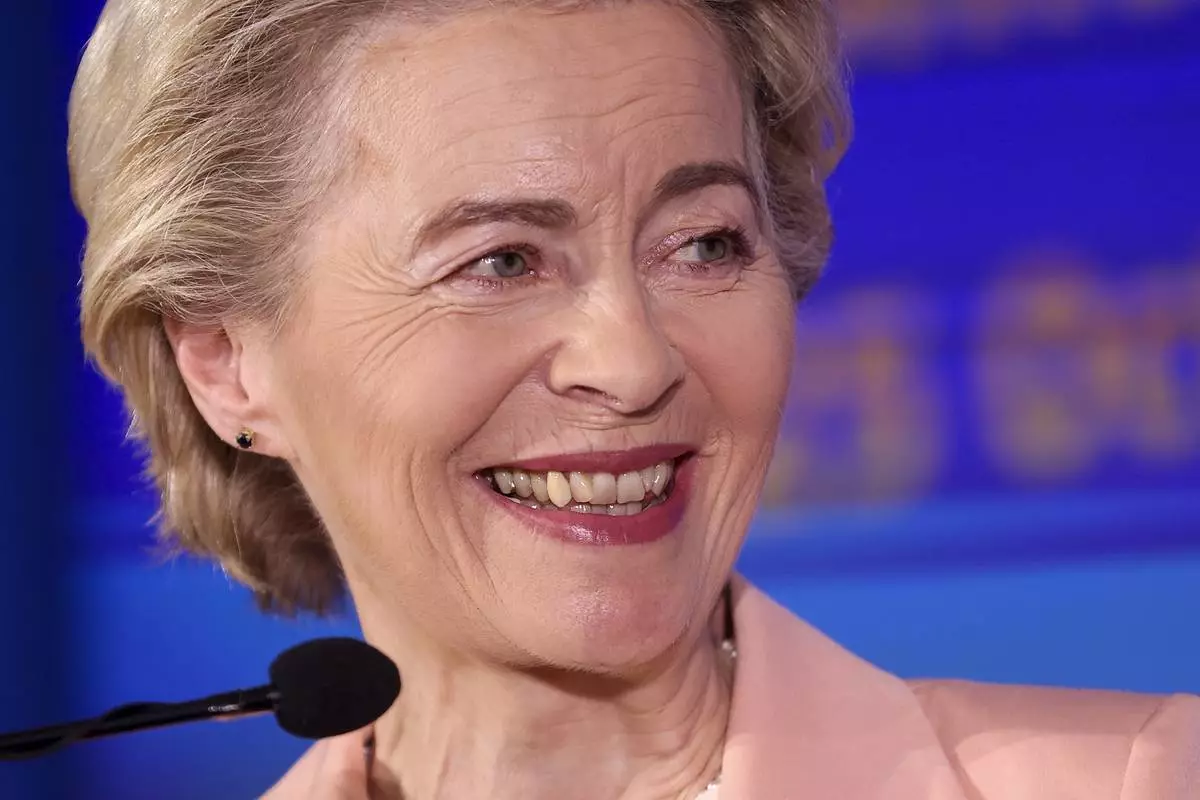
European Commission President Ursula von der Leyen smiles during a joint news conference with the President of the Council of Ministers of Bosnia and Herzegovina Borjana Kristo in Sarajevo, Bosnia, Friday, Oct. 25, 2024. (AP Photo/Armin Durgut)
BUDAPEST, Hungary (AP) — Hungarian Prime Minister Viktor Orbán suggested on Friday that Poland's government and its prime minister, Donald Tusk, were installed by the European Union as part of a plot to remove the country's previous right-wing populist leadership.
Orbán provided no evidence to substantiate his claims about Poland’s government, which was elected in 2023 with record high voter turnout of nearly 74%.
The comments came two days after Orbán, a nationalist who has taken an increasingly adversarial approach to the EU, told supporters in a speech that the bloc seeks to topple his government and install a puppet regime in Hungary.
Speaking to state radio Friday, Orbán lashed out at EU Commission President Ursula von der Leyen, and the leader of the bloc's largest political group, European People's Party president Manfred Weber, claiming they were seeking to replace his government as he said they had in Poland in 2023, when a coalition led by Tusk defeated the governing Law and Justice party in national elections.
“It’s not even a secret conspiracy against Hungary, it is an openly represented, announced plan,” Orbán said of the alleged plot against him, for which he has not provided evidence. “The same thing happened in Poland. The Poles also went their own way, they also took an independent Polish policy on migration, gender and the economy.”
Von der Leyen and Weber, he continued, “did their best and openly announced that the conservative Polish government should go and be replaced with a new one. This is how our friend Tusk became prime minister in Poland. The same scenario is now happening in the case of Hungary.”
In a text message to The Associated Press, a spokesman for Poland’s Foreign Ministry, Pawel Wroński, said: “A free parliamentary election took place in Poland on Oct. 15, 2023. The current government in Poland, just like the previous governments, was not installed but has been elected and is the expression of the will of the Polish voters.”
Orbán has frequently clashed with the EU, which has withheld billions in financial support from Hungary over its alleged breaches of rule-of-law and democracy standards. Poland's previous nationalist-conservative government also spent years wrangling with the EU over democratic deficiencies.
In response, Orbán has taken an increasingly combative approach to the bloc, which Hungary joined in 2004, and rallied euro-skeptic parties across the EU to create a far-right political force in the bloc's legislature. He has also moved Hungary closer to autocracies like Russia and China, seeking foreign investment and loans from Moscow and Beijing as EU funds dried up over his conduct.
Tusk’s government has sought to restore Poland's democratic institutions that he sees as having been dismantled under the previous Orbán-allied government, but has maintained some conservative policies such as a tough stance on illegal immigration.
Orbán, who faces national elections in early 2026, compared the EU to the former Soviet Union in the interview Friday.
“They’re going to be working on this. They need a puppet government. Let’s speak plainly, every empire is like that. The Soviets were like that, weren’t they?” he said of the EU.
Monika Scislowska contributed from Warsaw.
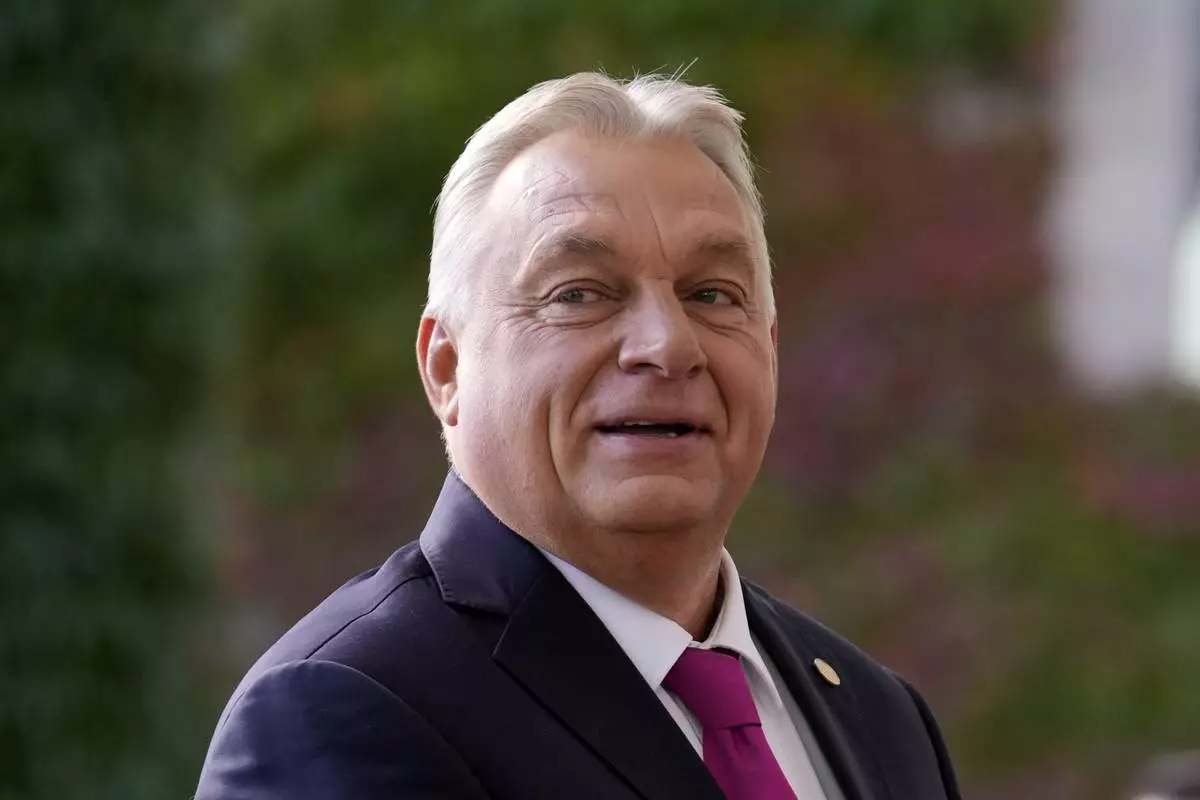
Prime Minister of Hungary Viktor Orban arrives to the 'Berlin Process' summit about integration with and within the western Balkans in Berlin, Germany, Monday, Oct. 14, 2024. (AP Photo/Ebrahim Noroozi)










